Boston Marathon conjures memories, brings close call
“This was definitely my last Boston Marathon and, of course, I will never forget it,” said Claremont resident Suzanne Wojcik as she tried to wrap her head around the tumultuous events of the previous 72 hours. It wasn’t until she was in a hotel room 200 miles away from the incident that she allowed her feelings to fully envelop her.
“I just couldn’t stop crying,” she admitted.
Long before the eerie silence that crept over the usually bustling and jovial post-marathon atmosphere, Ms. Wojcik admitted she had been feeling particularly emotional. Being back at the Boston Marathon with her family less than a year after her husband Joe Wojcik’s death from cancer was overwhelming in and of itself.
“When I checked into the hotel on Sunday, I had one of these moment’s widows describe as ‘ambush moments,’” she related. “The place was crawling with runners excited about the race. Every place I turned—the lobby, the bar—brought back so many memories. It just reeked of Joe.”
Mr. Wojcik was a fanatic about the Boston Marathon, just as he was a fanatic about running. Not a day went by without at least a 2-mile bound along Base Line Road and up around his home in Claraboya.
“Running was the highlight of his life. He ran every day through chemotherapy and radiation. It was just his passion,” Ms. Wojcik said. “Joe was a little bit of a Claremont celebrity. When people met him they would always say, ‘Oh, you’re the bald guy I always see running on Base Line!’”
He ran an average 5 miles a day over the last 30 years of his life, and participated in more than 60 marathons across 25 different countries and all 50 states. But for Mr. Wojcik, as for many other runners across the globe, it was all about “the Boston.”
“It’s the ultimate. There is nothing bigger or better than getting into Boston because you have to qualify. My dad was serious about running and the challenge appealed to him,” his son Joe, Jr. said.
Running was a cherished activity for father and son and 2 of Mr. Wojcik’s prized 8 Boston Marathons were shared with his namesake. Beyond the race itself were the memorable pre-marathon activities: a Sunday ballgame at Fenway Park, a carb-loaded pasta dinner the night before the race, and visiting the expo to check out the latest shoes and other running gear.
Though not entirely sure if he was joking, it came as no surprise to the family when the elder Mr. Wojcik decreed, even before he became ill, that he wanted his ashes spread along the route of the Boston Marathon when he died.
When Mr. Wojcik succumbed to pancreatic cancer last July, Joe, Jr. said there was no question that he was going to fulfill his father’s wish. He labored through the 90-degree heat of last year’s race to qualify for this year by 10 seconds.
Joe, Jr. made his way to Boston to compete alongside his Uncle and Mr. Wojcik’s brother-in-law, Gregory LaMothe, each equipped with several small bags of ashes. Their plan was to sprinkle the ashes at several memorable aspects of the race: the start at Hopkinton, at Wellesley College—Mr. Wojcik loved the exhilaration from the screams of the college crowd—at Heartbreak Hill, the toughest but last hill along the route, and, of course, at the finish.
Ms. Wojcik and Mr. LaMothe’s wife, Louise, came along for the special tribute and to cheer their men on from the throngs. There was nothing to suggest this race, which Ms. Wojcik had attended many times before with her husband, would be any different. There was the usual commotion and crowd 6-people deep around the finish. Ms. Wojcik recalled that at her first Boston Marathon, she could reach out and touch her husband at the finish if she wanted to, there were so few people.
Now with 23,000 runners, everything is blocked off. She woke early to walk around the finish line before the blockades went up. She considered taking a picture, but instead turned and left. She then walked back to her hotel to wait for her son.
An emotional rollercoaster
Despite the emotional task before him, or maybe because of it, Joe, Jr. ran with an extra exuberance that day. In fact, though he had more than the usual mindless run before him, he reached the finish line in a record time of 3 hours and 14 minutes, a personal best.
“I felt a little bit of a kinship with him in the run,” Joe reflected. “I’d like to think he helped me in that endeavor and propelled me to my fastest time in Boston. I will attribute all that to my father’s presence and influence in my life.”
With about 80 minutes until his uncle was expected to cross the finish line, Joe headed to the hotel to relax. In another part of the hotel, Ms. Wojcik had the news on as background noise in her hotel room, when the sound of sirens caught her attention. Though she heard the reporters talk about an explosion, it didn’t immediately click.
“I thought it was probably just a little gas pipe explosion,” Ms. Wojcik said. “I just couldn’t wrap my head around ‘bomb.’”
The panic didn’t really set in until she realized the time of the explosions was also around the time her brother had expected to finish the race. His wife, Louise, usually waits for him at the finish line, where the bombs had detonated.
“Your mind starts to play tricks on you and you begin to think of all the what-ifs,” Ms. Wojcik said.
She connected with her son, who had come to the same realization as her, and tried calling her brother, his wife, anybody that might know if they were okay. They couldn’t reach anybody. She didn’t realize then that much of the cell service in the area had been cut off.
Hours before, Mr. LaMothe was taking his time with his 10th and what he says is his last Boston Marathon.
“I joke that I have ran young and ran old, and young is way better,” Mr. LaMothe said. “There is no getting around it, the time it takes to prep for a marathon and the time it takes to recover when you are older is longer…but when Joe asked me to come with him, I couldn’t say no.”
Mr. LaMothe was pleased to find the race-day weather was gorgeous and he wanted to take his time and reflect on not only his last Boston, but on the life of his brother-in-law and the spreading of his ashes. In addition to the designated spreading grounds, Mr. LaMothe had another place in mind. The Citgo sign along the marathon route is significant for many of the runners, as Mr. LaMothe explained it. When you see that sign, just a mile away from the finish, you know the end is in sight. Though Mr. Wojcik was too sick to attend the marathon last year, he gave his son and brother-in-law one bit of encouragement before they left: “When you get to the Citgo sign, I’ll be there for you in spirit and run you in.”
With this memory in mind, Mr. LaMothe headed to the Citgo sign with special purpose. Knowing the significance of this place, Ms. LaMothe had deviated from her usual spot along the finish and opted to cheer for her husband from the Citgo sign instead.
“It took awhile to sink in,” Mr. LaMothe said. “I will always remember Joe when reflecting on that moment, because he was such a kind person. Why not say an extension of that kindness was whatever caused us not to be in harm’s way.”
Making sense of it all
Mr. LaMothe said he was about a quarter mile from the finish and long past rational when it struck him as odd that spectators had flooded the course, blocking his route to the finish. He became grouchy.
“I couldn’t understand why people were on course. The police are fanatical about people stepping over the barriers,” Mr. LaMothe said. “Then I saw people running toward me and, of course, thought it was just absurd.”
“From there, it was one of those things, like getting a piece of very bad news one drop at a time. At first, they say you are kinda sick, then they say it’s a sickness no one else has but you. Five minutes later, they say the sickness is life threatening and 5 minutes later, it’s ‘you are going to die.’ Piece by piece runners were filling us in about the explosions. There were hundreds and hundreds of us in our running shorts and singlets, walking around not knowing what was happening.”
Officers finally ushered the runners to an alternative route where they could collect their belongings. They were then told to go to their hotels and stay put. Mr. LaMothe said the hotel lobby and restaurants were bursting with people, all talking about the explosions. The hotel was filled with the cacophony of voices, a million stories recounting where each person was when the bombs went off.
“In order to grasp major external events, we tend to internalize. A bomb goes off…and it’s huge national news, but each person sees it through their own personal experience,” Mr. LaMothe said. “It’s hard to process or understand the horror at this large macro level unless we are able to tell ourselves how it affected us personally.”
While the insides of the hotels were swarming with people under lockdown, the outside was a different story, Joe, Jr. recounted.
“It was pretty eerie, like a war zone,” he recalled. “Usually, there is a great sense of jubilation—everyone is thrilled and happy. This year was certainly different. There were sirens and yellow tape, police everywhere. It was disappointing.”
The Wojciks and the LaMothes were never able to make direct contact; the La Mothes’ hotel was near the finish, while the Wojciks were walled up at a hotel in Cambridge. It was through a Facebook post that Ms. Wojcik was able to get peace of mind that her brother was okay. Within the next 24 hours they each headed out in different directions, Ms. Wojcik to New York City, the LaMothes to Texas and Joe Jr. on a business trip in Mexico.
“It’s been an emotional rollercoaster,” Joe, Jr. said, but “in all the crisis and panic, I was so impressed with the people in Boston and the way everyone came together and helped out when the bombs exploded. Despite the tragedy, there are a lot of good people out there.”
Ms. Wojcik believes that in spite of the devastation, the camaraderie of the running community, the spirit and joy of her husband, was alive that day.
“Many went to give blood or just stepped in to help in whatever way they could. When the going gets hard, they’re tough,” she expressed. “Joe was the same way.”
—Beth Hartnett
news@claremont-courier.com
[Editor’s note: Mr. LaMothe blogs for Runner’s World published by the Dallas News. His blog post, “Lucky to be Slow, Lucky to Have Joe” is reprinted here with permission. —KD]
The Boston Marathon: Lucky to be slow, lucky to have Joe
by Gregory LaMothe
My brother-in-law Joe Wojcik, who died last July of pancreatic cancer, was one tough runner. He had a streak of not missing a day of running for over 34 years, and had run several Boston Marathons, some of them with me. We had many years sharing our passion for running.
Last year was a difficult year for our entire family as his health declined, but Joe was stoic, forthright and impatient with platitudes or maudlin comments. But he did express one wish: “If you ever go back to Boston, leave my ashes along the course as my final visit there.” He loved that race.
This year was my tenth and final Boston. I didn’t want to go at all, but I had to for Joe. His son Joseph Jr. and I planned to run, carrying a few small one-inch square packets of ashes, and spread them at memorable points on the course: the start, Wellesley, Heartbreak Hill and the Finish.
Last year, my nephew and I also ran in that awful heat, and Joe told us before we left, “When you get to the Citgo sign (one mile from the finish), I’ll be there for you in spirit and run you in.” I told my nephew, “I’m going to break down when I get to the Citgo sign thinking of him, but it will be great to know he is with us,” and in fact it was quite emotional for me during that last mile in 2012. I knew that would be a place I would want to leave some ashes this year.
My wife, who normally waits for me at the finish, told me she would be on the left side of the course by the sign, so she could wave to me and watch me leave some ashes for Joe. And that is why she was far from the explosions on race day. Thank you, Joe.
As for me, my entire race was about this family mission. I spent the whole week traveling on business and went into the race pretty tired, but I didn’t care. I had no time goal, just a plan to enjoy this final Boston, take my time, slap hands with the Wellesley women, wave to everyone and savor the experience.
So while I didn’t have my best race time, it was the best thing that could have happened for me, as I was 3 miles from the finish when the tragedy happened. I heard nothing, and no one told me anything. But a curious thing occurred. About a half-mile from the finish, as I was approaching the Mass. Ave underpass, I saw ahead of me a number of spectators on the course, and people running all around. I wondered why the police were allowing this, as the security to protect the course from the spectators is very tight as you come into the city.
Like an idiot, I tried to run around these people. I had to get to the finish and knew nothing of what had happened. At last, 2 runners stopped me and yelled, “You have to stop. The race is cancelled. There were explosions and no one can approach the finish line!”
If you have ever run the marathon, you know that late in the race you lose the ability to think rationally. I couldn’t process this at all, and my first thought was that someone had pulled a prank, or there was a firecracker or smoke bomb and people were overreacting.
But as I mingled with all the other runners who had been stopped, very slowly the news got pieced together. “Oh no, how could this have happened? Those poor people.”
I’m on my way home as I write this, and all through last night and today, those of us who escaped harm shared similar stories. “I ran the race of my life and finished just a few minutes ahead of the explosions.” “My wife went back to the hotel to get me a jacket, or she would have been right there,” and so on.
But my story is a bit different. I know it sounds crazy, but I’d rather believe that on Monday Joe was still watching out for us. Joe, you’re now part of the Boston course, both physically and spiritually. Rest in peace, and thank you, Joe.
—Reprinted with permission. Greg LaMothe’s blog post first appeared in the Dallas News at http://runningblog.dallasnews.com




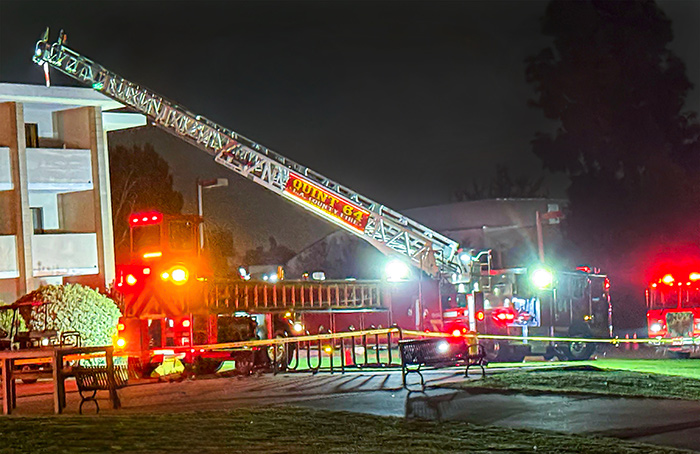
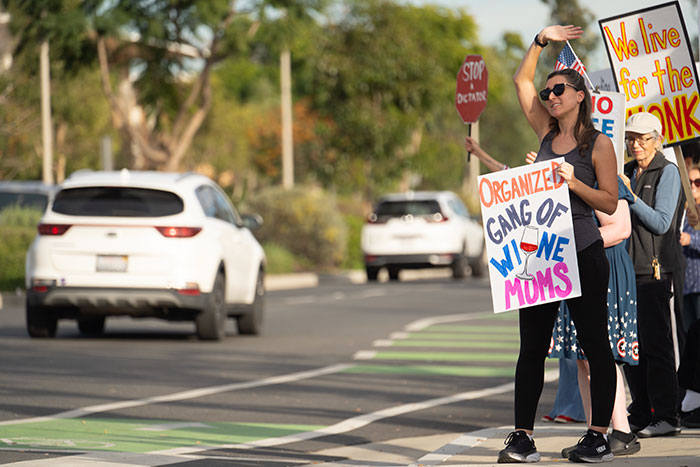
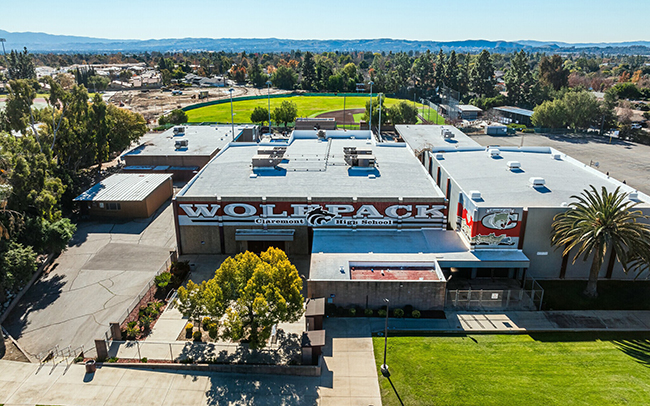
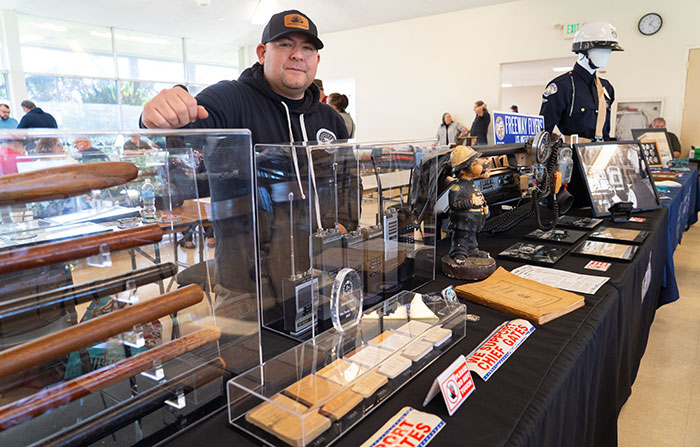
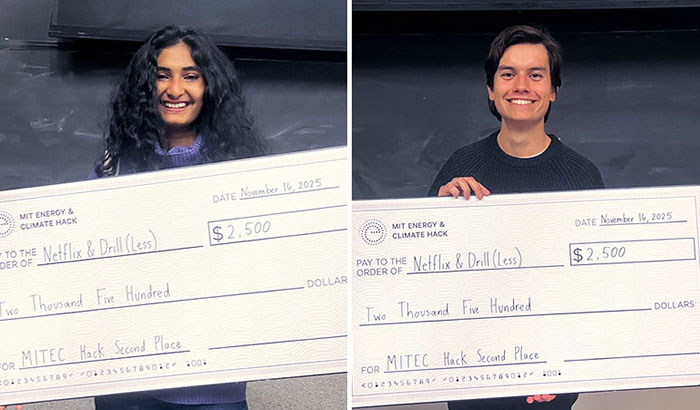

0 Comments